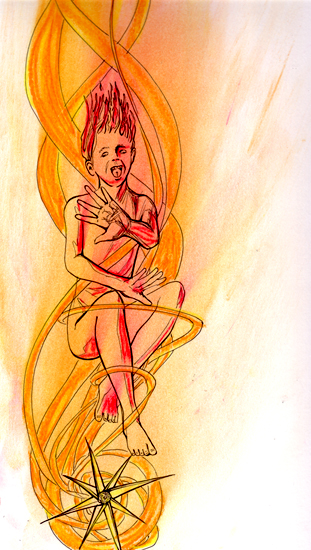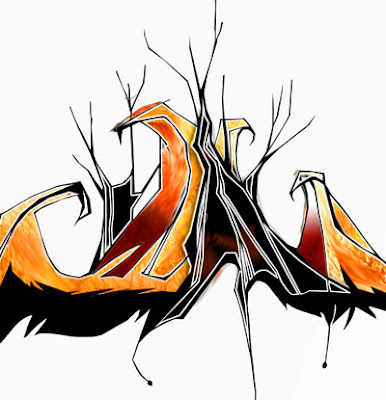Richard Dawkins is the bestselling author of The Selfish Gene and The God Delusion. He’s also a pre-eminent scientist, the first holder of the Charles Simonyi Chair of the Public Understanding of Science at Oxford, and is a fellow of New College, Oxford. Called “Darwin’s Rottweiler” by the media, he is one of the most famous advocates of Darwinian evolution. His most recent book is The Oxford Guide to Modern Science Writing, a collection of the best science writing in the last century.
This is the third in a series of podcasts we’re running from an interview with Dawkins. You’ve heard him speak about Alan Turing, the father of the modern computer, and Watson & Crick, the men who discovered the shape of DNA. Now, Dawkins tells us a bit more about his new book and reflects on the men who influenced his own theories.
Transcript after the jump.
DORIAN DEVINS: Welcome Richard Dawkins. You have a book out, The Oxford Book of Modern Science Writing, which you have edited. And you personally selected all the writings that are in this?
RICHARD DAWKINS: Yes, I selected them in collaboration with the OUP editor Latha Menon. We’ve worked together before; we worked together on my own collection of writings, which is called A Devil’s Chaplain. And so we worked well together, and we chose them together.
DEVINS: And how many different scientists are represented in this book?
DAWKINS: I haven’t counted.
DEVINS: It extends back to-the earliest writing is…
DAWKINS: Go back to the sort of Eddington-gene sort of time, I can’t remember what date they are, but sort of early part of the twentieth century. The decision was not to go back to the nineteenth century, that would have been a nice thing to do but it would have opened up a whole new vista which I didn’t feel like taking on.
DEVINS: And it would have necessitated your eliminating some of these people, I suspect. So, I see you have George Williams in here.
DAWKINS: George Williams was a very important influence in modern evolutionary theory. In 1966, he wrote a really seminal book called Adaptation and Natural Selection, which once and for all destroyed the theory of group selection, which was a very important thing to do at that time. And he substituted the view of evolution which I later christened the theory of the selfish gene. Williams didn’t use that phrase, but in effect the selfish gene was a new way of putting the theory that Williams had put forward in the 1960s. Oddly enough, I didn’t get it from Williams, I got it from Hamilton. Bill Hamilton, W. D. Hamilton, who’s also in the book and a very wonderful, eccentric character who I deeply loved and who died, tragically, not that long ago (about oh, well, actually maybe seven or eight years ago now). And Hamilton and Williams, I think, could be seen as the founding fathers of the selfish gene theory.
DEVINS: And what part did Hamilton bring in?
DAWKINS: Well Hamilton invented what Maynard Smith actually called kin selection; the idea that animals behave altruistically towards kin because they share genes. And in a way, you could say that everybody knew that about offspring, everybody knew about parental care, but what Hamilton showed was that the same principle as parental care works for brothers and sisters, nieces and nephews, etc.
ShareThis
 Well, here we are again. This week’s addition to my weekly ABC book project is C is for Cook. I had some debate with my wife on what sort of cook I should be doing. I even briefly flirted with the idea of changing the letter C to Chop and doing a robot sushi chef, but then I started thinking about depicting “hey, kids, it’s fun to play with knives," and decided it was best to return to my original idea. As always, I invite you to check out my regularly updated blog Robot Alphabet to track my progress on my book. You can also check out my portfolio site and other blog here.
Well, here we are again. This week’s addition to my weekly ABC book project is C is for Cook. I had some debate with my wife on what sort of cook I should be doing. I even briefly flirted with the idea of changing the letter C to Chop and doing a robot sushi chef, but then I started thinking about depicting “hey, kids, it’s fun to play with knives," and decided it was best to return to my original idea. As always, I invite you to check out my regularly updated blog Robot Alphabet to track my progress on my book. You can also check out my portfolio site and other blog here.
Mark
Some more FHM work: In the good old days before cannons and so on our ancestors used to wrap monkeys in hay and set them alight. They'd then be released near villages where the flames would raze the whole area.

*No monkeys were hurt in the making of this illo!
My blog
Here's a drawing for the fire theme... I was kinda thinking birth of a star or something... I actually like the color more than the drawing which is weird since I typically don't work in color.
I was kinda thinking birth of a star or something... I actually like the color more than the drawing which is weird since I typically don't work in color.
-hadesarrow

I don't even know what to say... I think I should start over

Heh, I swear I did not know the theme for the week was 'Fire.' (I don't think I got the announcement email! Jeff, have you dropped me from the list? *sob*)
I had posted this on my blog and on deviantArt earlier today and suddenly thought about how I haven't posted here in a looooong time. Wow...it's like...Fate or something! :P
Anyway, it's pencil and watercolor, done on a day when everyone I know has the day off except me and I was tired of working, so...I said 'why shouldn't I do something fun today?' Hee hee.
chickpea

These sunflowers are so bright that it almost looks like they're on fire! Illustration from a post card I made for SOS Children's Villages a while ago.
Anette Heiberg
www.anetteheiberg.com
 Hey everyone, it's week two and my Robot Alphabet book is progressing nicely. If you missed out on my earlier post, the short version is that I am in the process of illustrating my first children's book. Each week I'll be illustrating another letter until I reach the letter Z, after which time I'll be self-publishing the book. Here is B for Blast-off. Hope you like it. If you'd like to track my progress you can always check out my new weekly blog here.
Hey everyone, it's week two and my Robot Alphabet book is progressing nicely. If you missed out on my earlier post, the short version is that I am in the process of illustrating my first children's book. Each week I'll be illustrating another letter until I reach the letter Z, after which time I'll be self-publishing the book. Here is B for Blast-off. Hope you like it. If you'd like to track my progress you can always check out my new weekly blog here.
Mark
My personal website
 It's a yummy flaming pudding, with real cool blue flames.
It's a yummy flaming pudding, with real cool blue flames.
Click here to get it for your mobile.
The challenge this week on sugarfrostedgoodness.com is "fire".

Edward Slovik was arrested and served jail time for several incidents of petty theft, breaking and entering and disturbing the peace, between 1937 and 1939. Slovik was classified as unfit for duty in the U.S. military because of his criminal record.
He met Antoinette Wisniewski while working at a plumbing company in Dearborn, Michigan, and the two were married in 1942. The intensity of World War II forced the military to lower their standards in order to meet demands for replacement troops. As a result, Slovik's draft classification was changed and he was drafted into the infantry in January 1944.
During training, Slovik earned the reputation of being a good-natured buddy and learned to fire a rifle (which he hated) and other weapons. He was assigned to the 28th Infantry Division, stationed in France.
En route to the front, when his group of replacements was fired on, they stopped and dug in. Slovik and a friend became separated from the others. The two men soon came upon a camp of Canadian infantry and "joined" it, remaining with them for six weeks. Slovik finally rejoined his division, but he deserted almost immediately upon returning, ignoring the pleas of a friend not to leave. Slovik informed his company commander that he was "too scared" to serve in a rifle company and asked to be reassigned to a rear area unit. Slovik told the commander that he would run away if he were assigned to a rifle unit and asked him if that would constitute desertion. The commander confirmed that it would and refused his request for reassignment, assigning him to a rifle platoon.
A day later, Slovik voluntarily surrendered to an officer of the 28th Infantry Division, handing him a signed confession of desertion. However, he firmly stated he would run away again if forced to go into combat. The officer warned Slovik that his written confession was damaging evidence and advised him to destroy it. Slovik refused and he was confined in the division stockade.
Just prior to trial, the division judge offered Slovik a deal under which the court-martial action would be dropped if he would go back to his unit. Slovik refused. As a result, Slovik was tried and convicted of desertion, although he pleaded not guilty at the trial. The sentence of death was voted unanimously.
Slovik wrote a letter to General Dwight D. Eisenhower pleading for clemency, but no basis for clemency was found. On December 23, in the midst of the Battle of the Bulge, Eisenhower confirmed the death sentence. It was held that he "directly challenged the authority" of the United States and that "future discipline depends upon a resolute reply to this challenge." Slovik was to pay for his defiant attitude and he was to be made an example.
Slovik was executed by firing squad in January 1945. None of the rifleman so much as flinched, believing Slovik had gotten what he deserved. Slovik's last words were "They're not shooting me for deserting the United Stated Army - thousands of guys have done that. They're shooting me for bread I stole when I was 12 years old."
Although over twenty-one thousand soldiers were given varying sentences for desertion during World War II—including forty-nine death sentences—only Slovik's death sentence was carried out. He remains the only American soldier to be executed for desertion since the Civil War.
The man didn’t refuse to serve, he refused to kill.
This week's theme: Fire
The SFG Challenge runs Thursday to Thursday, and was created to offer every member an opportunity to stretch their creative muscles, venture outside of their artistic boundaries and post their interpretations each week on a specific theme. This is a completely voluntary challenge!
Be sure to label your illustrations with the appropriate labels as well. Label your entries with your name and the challenge label, in this case SFG: Fire
The next challenge begins Thursday, January 24, 2008.












